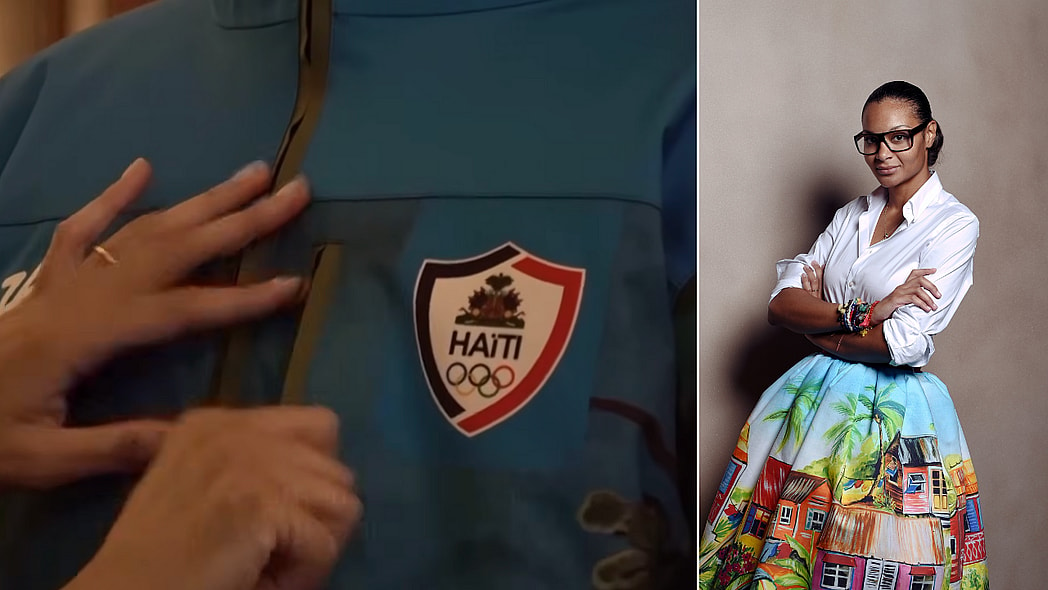PORT-AU-PRINCE, Haiti (AP) — Haiti’s newly installed transitional council chose former Sports Minister Fritz Bélizaire as the Caribbean country’s prime minister Tuesday as it presses forward in its monumental task of trying to establish a stable new government amid stifling violence.
Bélizaire replaces Michel Patrick Boisvert, the former minister of economy and finance who was the current interim prime minister. Bélizaire is little known and even some members of the council said they were unfamiliar with him.
The nine-member transitional council, seven of whom have voting rights, was choosing a new prime minister and Cabinet in a bid to help quell gang violence that is choking the capital, Port-au-Prince, and beyond. Bélizaire had the support of four of the council’s voting members.
Heavy gunfire was reported in several neighborhoods in Port-au-Prince on Tuesday, including near the National Palace, although it wasn’t immediately clear if it was in response to the unexpected announcement of a new prime minister.
More than 90,000 people have fled the capital in the span of one month, and overall, more than 360,000 people have been left homeless in recent years as gunmen raze communities in rival territories.
Earlier on Tuesday, the council chose Edgard Leblanc Fils, a former presidential candidate, as its president.
“This is a very good choice for prime minister,” Fils said of Bélizaire during a brief speech to nearly two dozen attendees. “The important thing for us is this will, this determination to go beyond divisions, to overcome conflicts and to reach a consensus.”
He said the council met Monday with army and police officials to talk about Haiti’s security crisis and how best to resolve it.
“We are publicly recognizing the suffering,” he said of the population.
The announcement of Bélizaire came as a surprise. A murmur rose through the attendees as officials announced that four council members with voting powers had selected Bélizaire as prime minister.
Leslie Voltaire, one of the voting council members, told The Associated Press, “I don’t know him,” when asked whether he supported Bélizaire.
Bélizaire served as Haiti’s sports minister during the second presidency of René Préval from 2006 to 2011.
“He’s kind of an unknown figure,” said Robert Fatton, a Haitian politics expert at the University of Virginia. “He doesn’t seem to have his own constituency. Maybe that made him the likely prime minister so different parties can accept him as prime minister.”
Council member Louis Gérald Gilles, who supported Bélizaire, told The Associated Press that the council wanted to act quickly in choosing a prime minister.

“The Haitian population can no longer wait,” he said. “The security issue is essential for societal calm.”
After the brief announcement, which was made nearly two hours after the event was supposed to start, the council went behind closed doors again to talk about their choices for Cabinet. Voltaire, however, said he didn’t expect the council to announce Cabinet selections on Tuesday.
The majority supporting Bélizaire included Fils, the council’s new president, Smith Augustin, Gilles and Emmanuel Vertilaire.
Fatton called them an “unlikely” alliance: “We’ll see if it can last.”
Fils represents the January 30 political group, which is made up of parties including PHTK, whose members include former President Michel Martelly and slain President Jovenel Moïse. Meanwhile, Augustin represents the EDE/RED political party, founded by former Prime Minister Claude Joseph.
Gilles represents the Dec. 21 agreement, which is associated with former Prime Minister Ariel Henry, who resigned weeks after the gang attacks began. Meanwhile, Vertilaire is linked to the Pitit Desalin party, which is led by powerful politician Jean-Charles Moïse, who celebrated Tuesday’s announcement.
“He is someone very important in the country,” Moïse said of Bélizaire. “He knows the state pretty well — he knows how to govern.”
The transitional council will act as the country’s presidency until it can arrange a presidential election some time before it disbands, which must be by February 2026.
Haitians remain divided over whether they believe a transitional government can help calm a troubled country whose capital has been under siege since gangs launched coordinated attacks on Feb. 29.
Gang members have burned police stations, opened fire on the main international airport that remains closed since early March and broke into Haiti’s two biggest prisons, releasing more than 4,000 inmates. The country’s biggest seaport also remains largely paralyzed by gang violence.
But one thing is certain: Haitians want security.
“Haitians are very impatient now. They want to see results,” Fatton said.
The council is expected to support the U.N.-backed deployment of a Kenyan police force to help fight gangs, although it’s unclear when that might happen.
Henry, the former prime minister, was on an official trip to the East African country when the coordinated gang attacks began, and he remains locked out of Haiti. He submitted his resignation last week.










